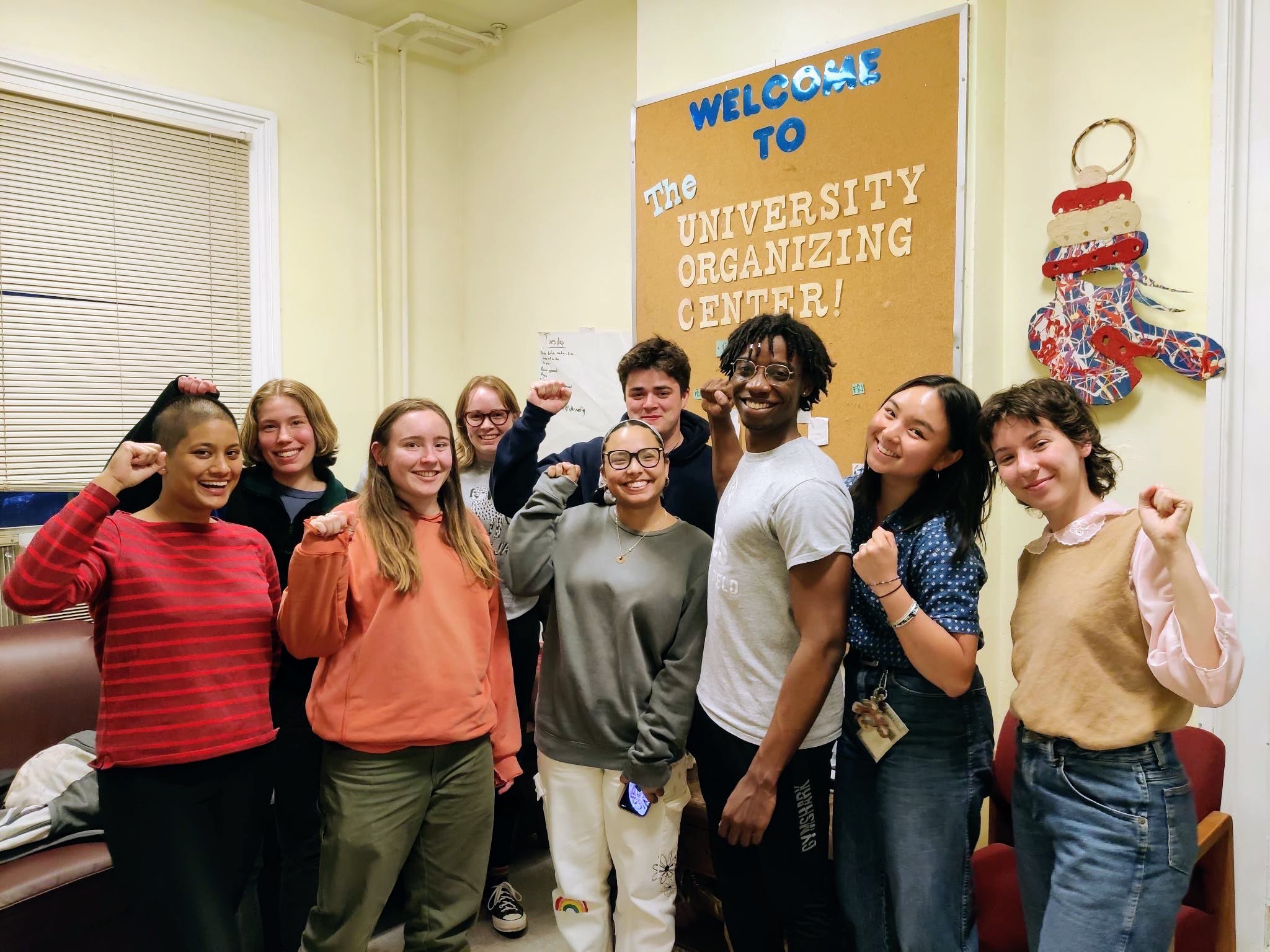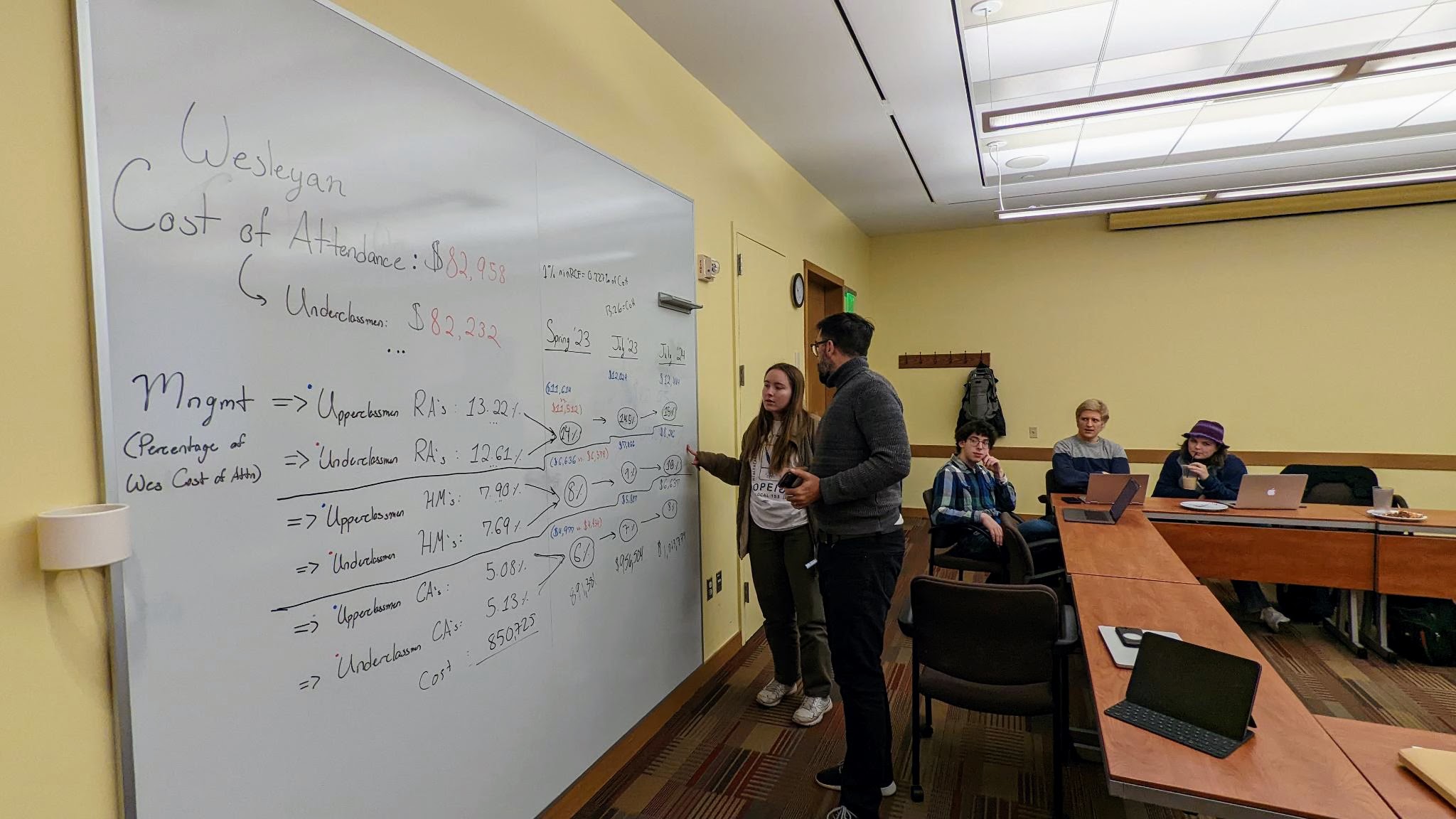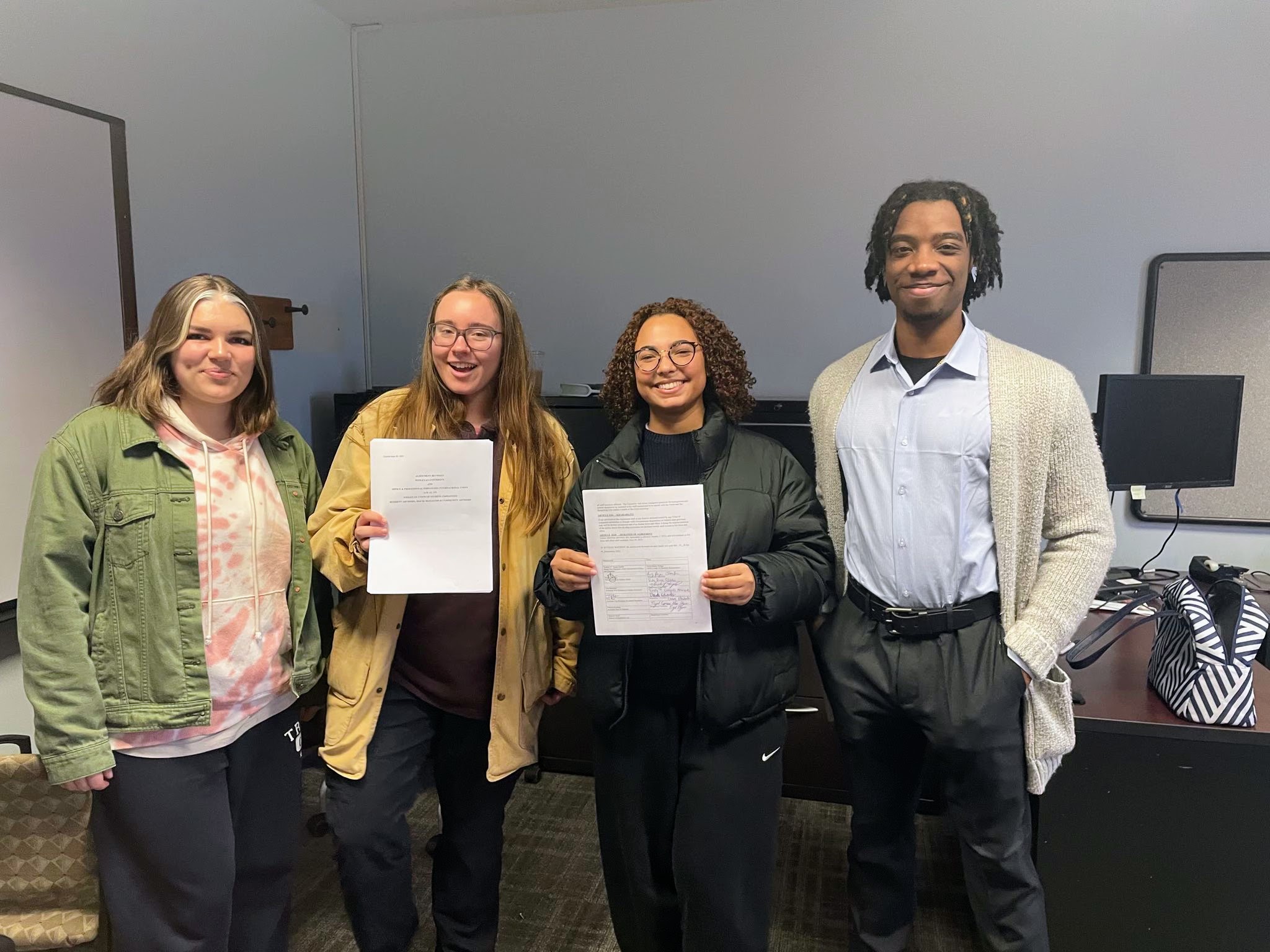
c/o Ruby Clarke
The members of the Wesleyan Union of Student Employees (WesUSE) voted affirmatively on a new contract for Resident Advisors (RAs), House Managers (HMs), and Community Advisors (CAs) on Dec. 19, 2022. Members of the union had been in negotiations with their managers since April 20, 2022, and finally secured higher compensation, additional pay for working on holidays, and a progressive disciplinary process.
Ruby Clarke ’24, a CA who participated in the bargaining process, explained the structure of the meetings.
“[Members of the bargaining committee] ended up meeting…once a week…for about three hours…with members of the management team,” Clarke said. “Both the union team and the management team would come up with proposals, which would go into a spreadsheet that I managed. We would bring [the proposals] together and meetings and we would go over them together.”
Clarke also explained that the negotiation process finally reached a conclusion when both parties—WesUSE and the University Administration—approved the proposal’s content and language. The process also included brief caucuses, during which the groups separated to discuss proposals as a team.
“I would bring a proposal on work schedules, for example, and we would go over it,” Clarke said. “We would go over…our explanation [for each proposal]. Then we’d give them some time to look at it. They might ask us some questions. They would caucus, [and then] we would come back together [until] we were close to agreeing on something.”
The contract was finalized in a meeting on the morning of Dec. 14, 2022, and published on Dec. 17, 2022. The contract was then approved unanimously by the members of the union on Dec. 19, 2022.
“I believe we had our final contract negotiation meeting on the fourteenth of December, which [was] in the middle of finals,” Clarke said. “It was early in the morning…[and] it ended up being like four and a half hours long, [which] was very inconvenient…. That is when we finalized the contract, which just meant going over it, making sure grammatically things made sense, [and] everything was in order, [but] not making any structural or significant changes to the text.”
Clarke emphasized the amount of effort that the student workers committed towards bargaining meetings and other aspects of the process.
“[We put] a lot of time and energy into the meetings [and]…outside of meetings to review the language [of the contract], and talk with other student unions to try and figure out what is a good policy [and] what has worked for them,” Clarke said.
The new contract went into effect on Sunday, Jan. 1, and includes raises of 17%, 32%, and 70% for RAs, HMs, and CAs respectively. It also provides that stipends for all student staff will increase each year at a rate proportional to respective increases in the residential comprehensive fee, which is the part of tuition that covers students’ room and board.

c/o Ruby Clarke
“Every school year, the University increases the cost of tuition,” Clarke said. “We were trying to think about how we [can] make sure that our paychecks are kept in accordance with inflation…. I’m really happy about [the fact that] we were able to have our payment tied to the cost of the [residential comprehensive fee] in a really explicit way.”
Associate Vice President for Human Resources Lisa Brommer issued a statement on behalf of Human Resources and Residential Life about the bargaining process, including some of the other benefits of the new contract to students.
“Throughout the bargaining process, the [U]niversity team and student workers addressed several items to be included in the contract such as hours and compensation, conditions of work including things like leave and scheduling, and various processes including disciplinary and complaint procedures,” Brommer wrote in an email to The Argus.
Brommer summarized the bargaining process as a successful one which will empower professional staff to continue supporting student staff in various aspects of their job.
“The negotiation process provided the Residential Life leadership team and the University many opportunities to reaffirm its support of our student workers,” Brommer wrote. “It gave everyone dedicated time to listen and learn together and to agree upon ways in which we can work together to create a successful employment experience for the student workers. The professional staff feels well-positioned to work productively with the union and they remain dedicated to ensuring an environment where the workers can be successful.”
One of the contract’s major clauses considers disciplines and discharges. The clause addresses job-related disciplinary action and dismissal.
“I think one of the parts…[that is] really integral to this contract is in the discharge and discipline section,” Clarke said. “Before [the contract], we didn’t need to have just cause for a dismissal. Essentially, [the managers] could fire us for whatever reason. There also wasn’t any instituted system for redress if someone felt like the [dismissal] process they had gone through wasn’t fair. [The new] just cause [section] means that your employer has to prove seven different [conditions] in order to be able to discipline or discharge someone.”
The contract also delineates policies on Weingarten Rights, giving employees the right to have a union representative with them in disciplinary action meetings. It also institutes health and safety policies and proposes grievances and arbitration, the processes by which employees can lodge formal complaints if they feel wronged within their job context. Clarke explained that the health and safety clauses were heavily informed by the experiences of ResLife workers who have handled emergency situations in the past couple of years.

c/o Ruby Clarke
“Another thing that I think is really important that sort of ties in with this is health and safety,” Clarke said. “Especially in the past, the University has not had a great track record when it comes to the kind of unsafe conditions that they’re asking their [staff] to continue working in. [One of the] biggest examples of that were…in the fall of 2020 when students on campus were all asked to leave for their own health, but [ResLife staff] were supposed to stay on campus until closing…. I know a lot of students didn’t feel comfortable or safe doing that.”
The health and safety clauses were also influenced by the experiences of RAs that worked during the night that the Butterfield residences experienced flooding during the fall of 2021.
“For many of the RAs [present], [that night] was their first time being on duty,” Clarke said. “I think that there’s a lot of concerns about the safety of the students being potentially compromised. In our health and safety clause, it says that no [member of staff] shall be forced to work in a situation which presents a serious threat to their health or safety.”
The new contract has a term of three years, after which time it will be revised by the members of the union. Going forward, WesUSE will elect union stewards, who will monitor issues in the workplace as they arise and serve as Weingarten representatives. Additionally, a Labor Management Committee, which will consist of five union members and five members of University staff, will continue to discuss issues that have not been explicitly addressed in the current contract, such as issues surrounding placement of workers within different areas of responsibility and allotted working hours of students on an F-1 Visa.
“Now that the initial bargaining process is over, we’re [going to] have stewards [that will conduct] union meetings where we can talk about any issues that are coming up in the workplace,” Clarke said. “Stewards are [going to] be able to continue to sit in on disciplinary meetings as Weingarten representatives. There’s also going to be the Labor Management Committee…working together to deal with some of the finer points of the contract, [including] things that we didn’t feel like we had the time or capacity to delineate, but we think are really important.”
Sulan Bailey can be reached at sabailey@wesleyan.edu.
Comments are closed